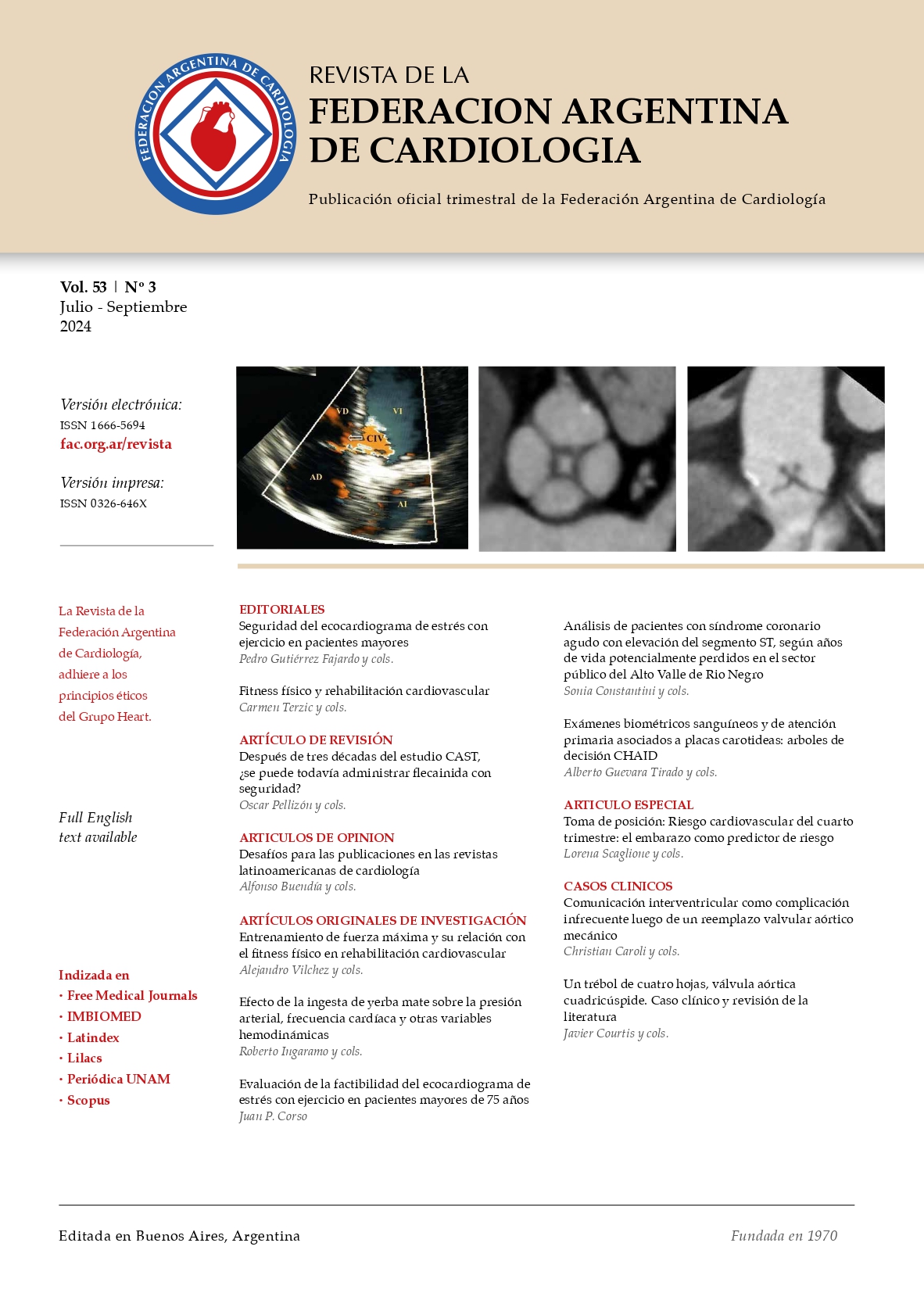Effect of yerba mate drinking on blood pressure, heart rate and other hemodynamic variables
Yerba Mate and its hemodynamic effects
Keywords:
Ilex Paraguariensis, Blood pressure, Heart rate, Impedance cardiographyAbstract
Objectives:Drinking "mate" which is a popular custom among the peoples of the extreme south of America consists of ingesting an infusion a dry leaf, the Ilex Paraguariensis, commonly called yerba mate. Among its ingredients are a variable amount of caffeine and other components. The main objective was to evaluate the effects that yerba mate ingestion produces on blood
pressure, heart rate, and other hemodynamic variables in normotensive and hypertensive subjects, all regular drinkers of the infusion. Methods: Ninety-four patients underwent heart rate and blood pressure measurement, impedance cardiography and a blood sample at baseline. After that, the patients started drinking a
fixed number of infusions. Forty-five minutes after finishing the infusion the patients were again
subjected to a final recording of blood pressure, heart rate, impedance cardiography and blood sample.
Results:Both in the normotensive and hypertensive groups, the systolic (p=0.015/0.002) and diastolic blood pressure (p=0.001/0.001) values, the peripheral vascular resistances (p=0.001/0.008) and the caffeine levels (p=0.001) showed a significant increase with respect to the baseline. Heart rate showed a significant decrease (p=0.001). No statistically significant effect of heage
and gender was found on changes in systolic (p=0.269) and diastolic blood pressure (p=0.896), or heart rate (p=0.268) in either the normotensive or hypertensive groups. Conclusions:The regular ingestion of yerba mate produces a significant increase in systolic and diastolic blood pressure and peripheral vascular resistance, both in normotensive and hypertensive patients under treatment, independently of age and sex. The clinical implications of these observations remain
unclear and have yet to be elucidated.



